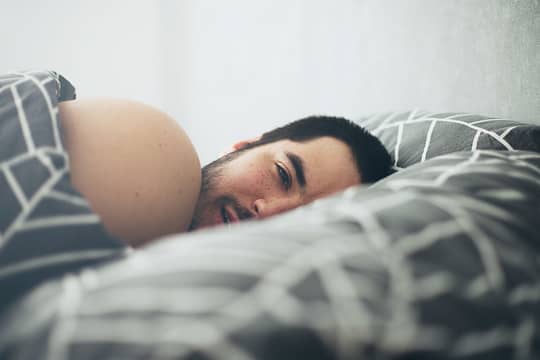Believe it or not, testosterone isn’t just a hormone for reproduction and your sex drive. Testosterone is a key hormone that impacts several things throughout the body. Weight, mood, bone density and sleep are all things that are impacted by testosterone levels. Not getting good quality sleep? Or are you just constantly dragging…well, that could be your low testosterone playing a part.

How Did My Testosterone Get So Low
Here’s the tricky thing. ‘Normal’ testosterone levels range greatly from person to person. What may be considered ‘low’ on the ‘average’ scale, may be normal for one person. This is precisely why it’s important to have an individualized program created just for you. One of the first questions our patients ask us is, ‘how did my hormones get so low?’ Well, there are a whole host of reasons, and thankfully, some can be avoided.
- Age – after the age of 30, a man’s testosterone levels begin to decrease naturally. Testosterone levels are peaking in your 20s and slowly decreasing in their 30s and 40s, which is why you may start to ‘feel old’ once you are hitting your late 30s into your 40s
- Diabetes and Obesity – these conditions are extremely common among men with Low T. Keeping a healthy weight and maintaining a healthy diet will help keep your body functioning at an optimal level and decrease your chances of having low T.
- COVID – we are beginning to see that men who have recovered from a COVID infection seem to have lower levels of testosterone than those who did not have a COVID infection.
- Alcohol – drinking alcohol tends to bring down a man’s testosterone levels when consumed regularly.
There are a variety of reasons testosterone levels can be lower than what’s an ideal range for your body. It’s important to get a full panel of blood work to see the inner workings of your body so our office can create a unique plan just for you. If you think you may be a candidate for testosterone replacement therapy, contact our office today by dialing 973-998-7770!

